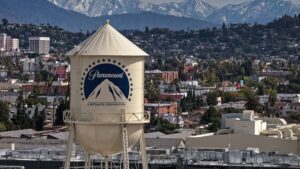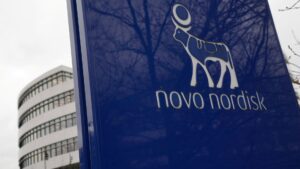Patagonia Founder Is Giving His Company Away in Pledge to Fight Climate Change

Patagonia founder
Yvon Chouinard
is giving away the multibillion-dollar outdoor apparel business he founded nearly 50 years ago, with a goal of helping to tackle climate change.
Mr. Chouinard and his family have transferred their ownership of Patagonia to a trust and a nonprofit organization as opposed to taking the privately held company public or selling it, the 83-year-old founder said in a letter Wednesday, titled “Earth is now our only shareholder.”
“It’s been nearly 50 years since we began our experiment in responsible business, and we are just getting started,” said Mr. Chouinard, a world-class mountain climber who started importing rugby shirts and other apparel in the 1970s for his friends to wear. “If we have any hope of a thriving planet—much less a thriving business—50 years from now, it is going to take all of us doing what we can with the resources we have. This is another way we’ve found to do our part.”
SHARE YOUR THOUGHTS
Do you think the Patagonia move will inspire more business owners to donate their companies to environmental and social causes? Join the conversation below.
Patagonia, based in Ventura, Calif., didn’t immediately respond to a request for comment.
The company made a name for itself selling fleece jackets, board shorts and plaid shirts. The fleece vests in particular have developed a cult following from people who work in finance, while the company’s environmental- and social-conscious practices have earned dedicated buyers in other consumer spheres. Patagonia had annual revenue of $1 billion from 2017 to 2020.
Patagonia will remain a for-profit business under the new arrangement and will continue to be run by chief executive
Ryan Gellert,
Mr. Chouinard said. The company will also continue donating 1% of its sales to environmental nonprofit groups, he said.
The trust, called the Patagonia Purpose Trust, owns 2% of the company and all of the voting stock. It will be tasked with protecting Patagonia’s existing values and independence, Mr. Chouinard said. The nonprofit organization, called the Holdfast Collective, owns 98% of the company and all the nonvoting stock, which doesn’t give it decision-making authority. It will be charged with taking the profits generated by Patagonia and using those funds to address climate change.
Patagonia said in a statement that it expects to pay out roughly $100 million a year to Holdfast Collective, depending on the health of the business.
Stacy Palmer, who has been editor of the Chronicle of Philanthropy since it was founded in 1988, said it was the first she has heard of an arrangement such as this.
“As far as I know, this is extraordinarily different than what others have done because of Patagonia’s size and profitability,” Ms. Palmer said.
She noted that Holdfast Collective is a 501(c)(4) not-for-profit organization, which allows it to use the money to advocate for causes and political candidates, not just to give to charities.
“This means that the money is intended to shape policy and politics, more than, say, supporting a charity that does river cleanup,” Ms. Palmer said. “That’s a lot of money pouring into advocacy and could be very powerful.”
Mr. Chouinard has said that he approaches leading his company as a sort of a road map for aspiring business owners.
“I never even wanted to be in business,” he said in a 2012 interview with The Wall Street Journal. “But I hang onto Patagonia because it’s my resource to do something good. It’s a way to demonstrate that corporations can lead examined lives.”
The Chouinard family will oversee leadership of the Patagonia Purpose Trust and will spearhead the philanthropic work of the Holdfast Collective. The family will also remain member of Patagonia’s board of directors.
Write to Joseph De Avila at joseph.deavila@wsj.com and Joseph Pisani at joseph.pisani@wsj.com
Copyright ©2022 Dow Jones & Company, Inc. All Rights Reserved. 87990cbe856818d5eddac44c7b1cdeb8








